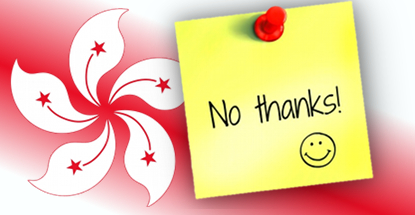 Hong Kong doesn’t intend to follow Singapore’s lead in seeking to block international online gambling sites, despite concerns that the sites are stealing much of the authorized gambling provider’s thunder. On Saturday, the South China Morning Post quoted a Home Affairs Bureau spokesman saying Hong Kong would not look to mimic Singapore, which recently introduced legislation to curb gamblers’ ability to access international online gambling sites.
Hong Kong doesn’t intend to follow Singapore’s lead in seeking to block international online gambling sites, despite concerns that the sites are stealing much of the authorized gambling provider’s thunder. On Saturday, the South China Morning Post quoted a Home Affairs Bureau spokesman saying Hong Kong would not look to mimic Singapore, which recently introduced legislation to curb gamblers’ ability to access international online gambling sites.
The spokesman went on to say that Hong Kong authorities “do not block one’s internet access” out of respect for the “freedom to access information.” Instead, the spokesman said Hong Kong had adopted “a multipronged strategy which includes regulation, law enforcement, public education and provision of counseling and treatment services.”
The comments will likely come as a deep disappointment to the managers of the Hong Kong Jockey Club (HKJC), the only outfit currently authorized to accept online wagers in the special administrative region of China. In June, the HKJC’s director of trading Patrick Jay accused non-authorized operators of having “links to organized crime,” which made betting with these firms akin to “a blood crime.”
The HKJC’s hands are not entirely spotless, given that a recent Shue Yan University poll found over one-third of the HKJC’s online customers was not yet old enough to legally gamble. Regardless, when a local florist was asked why he chose to wager online with an international site, he didn’t mince words, telling the SCMP “the odds online are better than the Jockey Club.”
Current Hong Kong law allows for prison sentences of up to seven years for unauthorized online betting operators provided they are foolish enough to base themselves on Hong Kong soil. In July, Hong Kong authorities reported having arrested a total of 176 individuals involved in illegal betting on the 2014 FIFA World Cup football tournament.
Most reputable Asian-facing online betting sites are based in the Philippines, where they hold licenses issued by the state allowing them to operate provided they do not accept wagers from Philippines-based gamblers (although that too may be allowed if the government approves a bill introduced in July).
